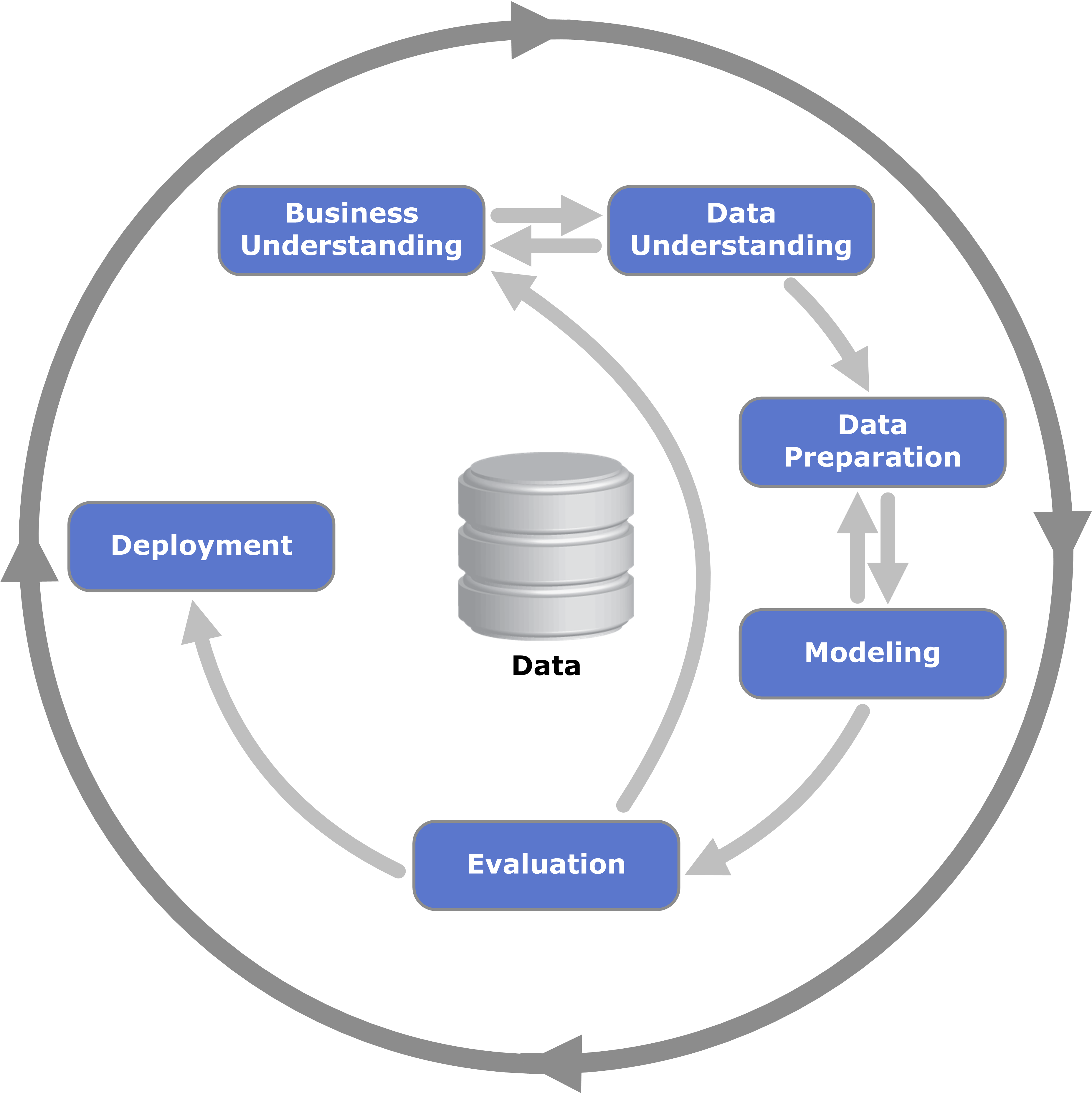Chapter 1 Introduction
The object of statistical methods is the reduction of data. (Ronald A. Fisher 1922, 309)
The Statistical Method or simply Statistics brings together theoretical and practical tools to analyze quantitative information, measure uncertainties and help in decision making. It is a component of the Scientific Method, and can be divided according to the scheme in the Figure below. In this course, the fundamentals of topics such as exploratory data analysis, probability, sampling, inference under the classical and Bayesian prisms and linear models will be covered.

The workflow of a data project is typically described in a few basic steps.
- Understanding the problem.
- Understanding and preparing data.
- Modeling and evaluation.
- Implementation and communication.
CRISP-DM (Cross-Industry Standard Process for Data Mining) is an open standard which formalizes the steps described (IBM 2011).
